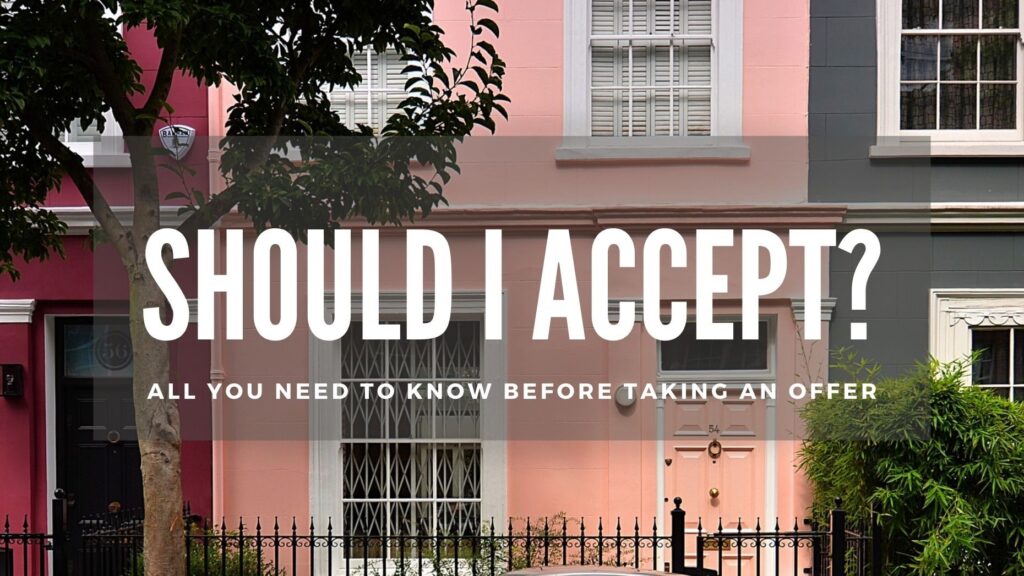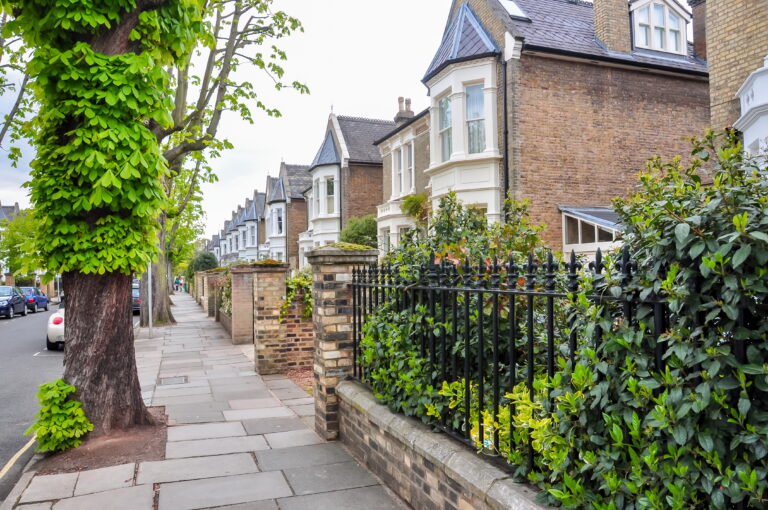Great news! Someone wants to buy your home, and perhaps you've even received more than one offer. You've made the step from being available to being in demand, and now it's time to decide whether an offer is a good one – and the right one – for you.
An offer is so much more than the price put forward. It can be tempting to simply go for the highest number, but it's extremely wise to look at the full picture of every offer you receive to ensure it has the best chance of going through, and in the timeframe that fits your plans.
Offers come in all shapes and sizes, from all sorts of buyers, with all sorts of circumstances. For you to feel comfortable and confident in saying yes, it's up to your estate agent to clarify the finer details of every offer: from the buyer's financial position to any dependent sales or chains, to any other conditions or factors that could affect progress.
So let's take a look at the things you need to know about any offer you receive, so you can decide with full confidence whether to take it, or leave it.
IS IT TOO SOON?
There's an interesting dichotomy for every homeowner when it comes to selling their property. The highest priorities for people are generally speed of sale and price achieved, but an offer coming in very fast – no matter how high – can often leave somebody wondering if their home is underpriced.
The first thing to say is that it's perfectly natural to wonder if you'll receive a higher offer if you hold on for longer. It's a thought that almost everyone shares, but most fears can be allayed by looking at whether the offer reflects local values.
In our experience, the best buyers are usually among the very first to view your property. They're the ones waiting in the wings for something suitable to come up and they've already viewed and rejected other options. They're ready to go and ready to offer immediately when they see exactly the home they want.
It's also good to remember that if your property is correctly priced and correctly marketed, there's really no reason for it to sit around on the market. Nobody actively wants their home to be rejected time and time again, but there is something about viewers in volume that gives comfort: perhaps it's a simple case of safety in numbers.
Nonetheless, it's the amount and circumstances of an offer that are by far the most important factors. Getting a great offer from a great buyer in a great position is something to be celebrated, and even more so if you don't have to wait long for it to happen.
IS THE OFFER ENOUGH?
It might be the most basic of all questions relating to an offer, but the price is certainly the one that will raise the most emotion, whether disappointment, doubt or delight.
It's very rare for a buyer to put their best offer forward first, so don't be offended if an initial bid is lower than you'd hoped. Everything is a negotiation and your estate agent is there to assist in getting an offer increased.
These few simple questions can help you make the right decision:
- does the offer fall within the range of values you were given when you initially spoke to estate agents?
- does the offer reflect the prices that similar nearby homes are selling for today?
- is anyone else expressing interest in your property?
If you've only been on the market for a very short while, you shouldn't need to accept an offer much lower than your asking price, if the price you are on the market for is realistic.
But if you've been on the market for a long time, could it be down to your asking price being too high? If the offer fits with other local sales, perhaps now is the time to go with the evidence.
ANY STRINGS ATTACHED?
Many people have grand plans for their next home, but it's important for you to know whether their offer depends on obtaining permission or estimates before they will exchange contracts.
If your buyer wants to add an extension, convert the loft, remove some walls or reconfigure any aspect of your property, they may need consent to do so. Many people will happily seek that after completing the sale if any structural work is considered fairly usual, and they may have already budgeted for the expense involved.
But if the works they intend to do are on a bigger scale, or if your property is in a conservation area, your buyer may not want to risk it before either checking with the local authority, speaking to a builder, or waiting until full planning permission is granted. So getting that clear from the outset is key.
Timeframe can also be a condition of sale – whether fast or slow – so check when your buyers would like to complete to make sure their hopes and expectations fit with your own.
Do they want to move in time for a new school term, or wait until the end of a school year before taking children out of their existing school? Does a work relocation have a date that needs to be met? Are there any other factors that could affect the speed of the transaction?
IS IT CASH OR MORTGAGE?
Not everyone is entirely clear on what cash actually means, and a cash buyer isn't necessarily faster than someone getting a mortgage.
Cash purchases
Receiving an offer from a cash purchaser with no dependent sale is everyone's dream, because it removes at least two potential delays: no mortgage process, and no chain.
Most people understand that a cash offer means there's no mortgage involved, but some buyers think they are cash purchasers if they simply have their deposit in the bank, even if they are borrowing the rest. So that's the first question your estate agent should ask.
Assuming the offer is 100% cash, your buyer should provide proof of those funds, either by supplying bank statements or a letter from their solicitor confirming their position. It should also be confirmed whether the money is readily available, or if a notice period is required.
Sometimes the cash can be coming from another sale, effectively placing you in a chain. Your estate agent should speak to the selling agent of that property to confirm the details.
Mortgage purchases
Most people buying their next home take out a mortgage, but not everyone looking for property has all the arrangements in place, or even confirmed if they can borrow. If your buyer already has a mortgage agreement in principle, that's a good sign.
Finding out what percentage of the purchase price is being borrowed can help you decide between two or more offers. The lower the amount being borrowed, the less dependency there is on the mortgage valuation. This could also be important if you've achieved an unexpectedly high price, or set a new level for your street.
Again, you need confirmation that the deposit monies are readily available. If your buyer is receiving a gift from the remortgaging of their parents' property, or releasing funds from another one they own themselves, your sale will become dependent on those loans completing.
These are not unusual circumstances nor necessarily problems, but neither do they need to be surprises.
IS THERE A CHAIN?
A chain is a series of connected sales, with each property a link. They are a normal part of moving home and can be really short with just two properties, or they can be quite long and weave their way across the nation.
Chains are not necessarily something to be frightened of and it's perfectly possible that a chain of 7 or 8 sales could proceed with zero problems, just as it's possible for a chain-free sale to encounter a delay.
Nonetheless, the more sales your move depends on, the more potential exists for delays and problems that are outside your control, so it's essential to check every sale in the chain for its progress to date, and for any existing or possible hitches. A big part of estate agency is liaising with other agents up and down the country to stay informed on the chains they are involved in.
Remember, the success and speed of your sale will depend on every other property in the chain, and nobody exchanges contracts until the slowest sale in a chain is ready. This avoids a sale falling through after others have exchanged contracts, which could leave people open to penalties if they are unable to complete.
So if your move depends on a particular deadline, it's vital to know exactly where the chain is at before you commit to an offer.
Having all these points answered will give you the peace of mind you need to accept an offer with confidence, and without later regret. You should never feel pressurised into accepting an offer that doesn't satisfy the questions above, so feel free to challenge any advice that doesn't fit or feel right.
Are you concerned about an offer you've received on your property, or are you getting less interest than you'd hoped? If you'd like to talk about your move, why not get in touch? You can call us on 02380 987720 or email us at southampton@hunters.com: we'd love to answer your questions and help you on your way.




